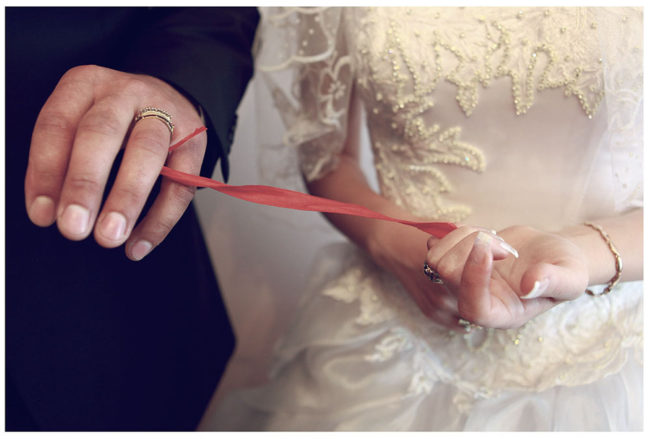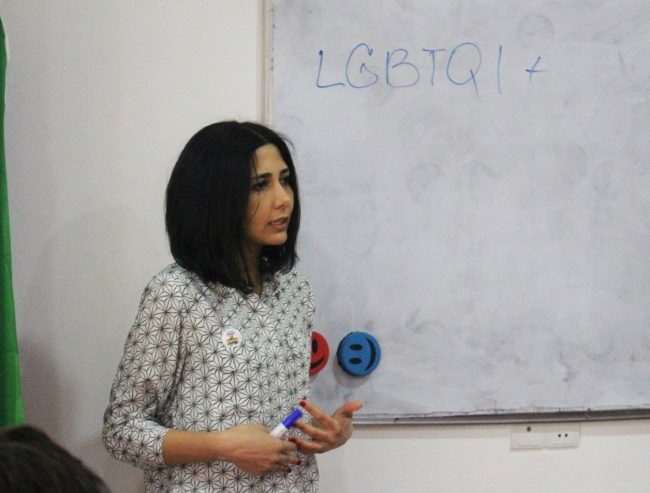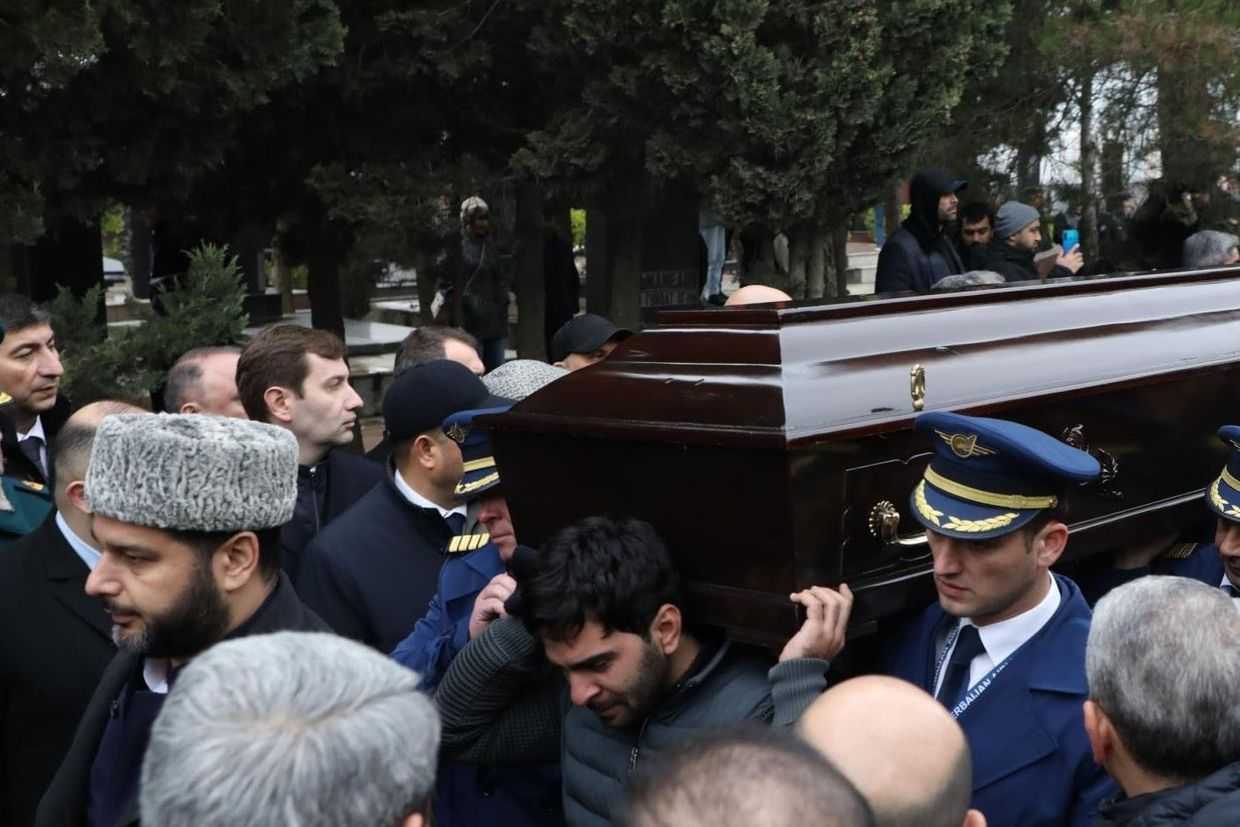

 Child marriage and forced marriage in Azerbaijan leave some young women with an impossible choice: family or freedom. In spite of pressure from family, the police, and schools, some unwilling brides-to-be still decide to run away.
Child marriage and forced marriage in Azerbaijan leave some young women with an impossible choice: family or freedom. In spite of pressure from family, the police, and schools, some unwilling brides-to-be still decide to run away.
[Read in Azerbaijani — Azərbaycan dilində oxuyun]
Nineteen-year-old Fidan ran away from her parents’ home to seek a new life. As she was growing up, she gradually began to realise that life for women in Azerbaijan was not what she wanted for herself.
‘At the age of 12, the first strict rule was made clear to me when I was told that I was a ‘grownup girl’ but I didn’t have the right to go out, whether in summer or winter. When I got a phone, my father used to check it carefully, and for no particular reason he would phone my schoolteachers to ask the exact time I had arrive and left school. The first time I protested against this interference in my life, I received a slap to the face. The second time, I was beaten with household objects’, Fidan tells OC Media.
When she was 17 years old, Fidan’s parents wanted to marry her off to a man who was 11 years her senior. She says she had nothing in common with the man, but the fact that he had a car and money was a priority for her parents. When she expressed a desire to continue her education, her parents accused her of not being a virgin, something which is regarded as immoral by a large segment of Azerbaijani society.
‘I wanted to pursue a higher education, but when I told them this, I received the response: “it’s better you work and save up for your jehiz (dowry)”. My father arranged for me to work in a shop. I began to save up money and used it to buy some textbooks, so that during my free time I could start preparing myself for university. My parents found out about this and all of my textbooks were thrown in the bin. They took away my wages from then on and didn’t leave me a single penny’, she says.
This was a turning point for Fidan — she decided that no matter what happened, she was going to leave not only her parents’ home, but also the country. Friends helped her collect money and now she lives outside Azerbaijan. Her father threatened to kill her, but Fidan feels that she is safe. She says that she is building a new life for herself in which she plans to pursue a higher education.
‘Sadly, my family treated me like a slave, but I refused to accept the destiny of a slave.’ Fidan says.
Penalties for forced marriage
Child marriage is an acute problem in Azerbaijan. While there are no official statistics on the number of such marriages, according to the State Statistics Committee, from 2008–2014, an average of 3,500 babies were born each year to girls aged 15–17. According to the law, anyone forcing someone under the age of 18 into marriage faces up to four years imprisonment or a fine of ₼3,000–₼4,000 ($1,700–$2,300).
The head of the Department for Information and Analytical Research at the State Committee for Family, Women and Children’s Affairs, Elgun Safarov, insists that they are doing their best to help. He told local media that between 2014–2015, the Committee received reports of forced child marriages from all over the country, adding that the committee’s regional departments prevented at least 30 such marriages over the past few years.
Threats and ‘virginity tests’

Gulnara Mehdiyeva from queer rights group Nefes LGBT is well known in Azerbaijan for her work on gender issues. She says that over the past three months, she has been personally approached by six young adult women who either want to run away from or have already run away from their parents’ home. They mainly come to her for legal advice, asking her in advice in how to leave home and go abroad, and in what circumstances the authorities can apprehend a runaway and return her to her family.
‘The security forces sometimes take advantage of the fact that these women do not know their rights. In the most recent case, police threatened to perform virginity tests on the female friends of a runaway girl, and said they would open a criminal investigation, even though there was no legal basis for this’, Mehdiyeva says.
She explains that methods used to pressure young women are often designed to exploit their fear of going against tradition.
One female friend of a runaway girl made a complaint against police in the town of Ganja, after an unknown man identifying himself as a police officer made rude comments to her because she went out to the shops at night. It was subsequently revealed that the man was an employee of the Ministry of Justice, and she was called to the police station to withdraw her complaint, being told ‘it was improper for an Azerbaijani woman to be at a police station in the first place’.
The woman was aware of her rights and did not hesitate to demand them, but this is not always the case. Many in Azerbaijan do not know that conducting ‘virginity tests’ on adult women and demanding information about them from doctors is forbidden by law, or that forced marriage is even a criminal offence.
‘I know of cases where police intimidated young adult women with the threat of ‘virginity tests’, however by law they can only do this if a woman alleges she has been raped (or, in the case of an underage girl, if her parents make the allegation)’, Mehdiyeva tells OC Media.
‘Usually in such cases, we inform the girls of their rights and where possible, we try to make the public aware of the situation through social media. When this happens, the police act more responsibly towards these issues’, she continues.
Feminism in Azerbaijan
Mehdiyeva emphasises that problems common for women throughout the world, such as domestic violence, workplace discrimination, and so on are are compounded by issues more specific to Azerbaijan. These include sex-selective abortions and forced marriage, including child marriage. Girls also frequently leave school at just 13–14 year olds, but schools usually keep silent about it.
‘According to statistics, the number of girls from the regions applying to go on to higher education is low. In larger towns, girls don’t usually have problems obtaining a higher education, however there are widespread stereotypes about such diplomas obtained by girls being more of a ‘dowry’ [a university diploma can be seen as making a woman more ‘marriageable’]. In any case, in both the towns and the regions, the highest objective for most girls is marriage and starting a family’, she says.
Talking of her activism, Mehdiyeva laments that many people in Azerbaijan have never heard of feminism, or if they have, do not understand what it is. But she remains optimistic that her activities have the potential to reach a diverse audience, and is excited to take her message out into the regions.









